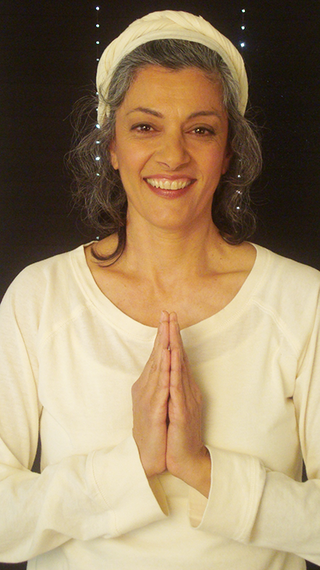 This is an interview with Sumr Breez, who began teaching yoga in 1997 at Fitness West in Phoenix, AZ. Now she teaches all levels and all ages at DeVry University & Mesa Community College, the Phoenix Veterans Center and the Merritt Center Women's Returning Vet Program, among other places.
This is an interview with Sumr Breez, who began teaching yoga in 1997 at Fitness West in Phoenix, AZ. Now she teaches all levels and all ages at DeVry University & Mesa Community College, the Phoenix Veterans Center and the Merritt Center Women's Returning Vet Program, among other places.
Rob: What originally motivated you to do this work, and what continues to motivate you? How, if at all, has that motivation changed over time?
What motivated me at first was how good I felt doing yoga; I wanted to share my discovery with the world! What motivates me now is how valuable this tool is to the world at this time. My passion for yoga has grown deeper and deeper, as I experience its gifts within my personal life.
Is there a standout moment from your work with veterans?
Yes, the moment came when I first began working with veterans, and wondered if yoga was penetrating all the emotional turmoil they have in their psyche and body. I witnessed a major break-down and break-through with a veteran who I assumed was not receiving any benefit from our session. Later, he told me "this was the most soothing amazing experience I have ever felt." Today, when I walk into the group to begin our session, I hear the veterans take a deep breath and close their eyes, to tune into their body on their own...that is awesome!
What did you know about the population you are working with before you began teaching? What were some of the assumptions you had about this population, and how have those assumptions changed?
I did not know much before I began teaching; I just wanted to offer my services and hope they experience peace within! I do my best not to assume much -- I have noticed how open they have become to trying out new movements and chants.
What are two distinct ways that your teaching style differs from the way you might teach in a studio and what are the reasons for these differences?
I do my best to teach to those in front of me in each class. I go by the energy of the group. I teach the same wherever I am...studio or not!
What has been the greatest challenge in your teaching experience, and what tools have you developed for addressing that challenge?
The greatest challenge is to meet all those attending class at the same time. I typically have different levels in the same class. Tools I have developed: now I observe and offer a beginner and advanced movement to address to all those present.
What advice would you give to anyone who is going to teach in the population you work with?
Assume nothing and trust your instinct, and know what you are doing is so valuable.
What are some of your ideas about, or hopes for, the future of "service yoga" in America in the next decade?
That service yoga would be available in hospitals, at doctors' offices, and readily available to anyone and everyone.
How has this work changed your definition of service? Your definition of yoga? Your practice?
A friend said to me: it sounds like you are not just doing movement and yoga...you are offering therapy...indeed!!!
